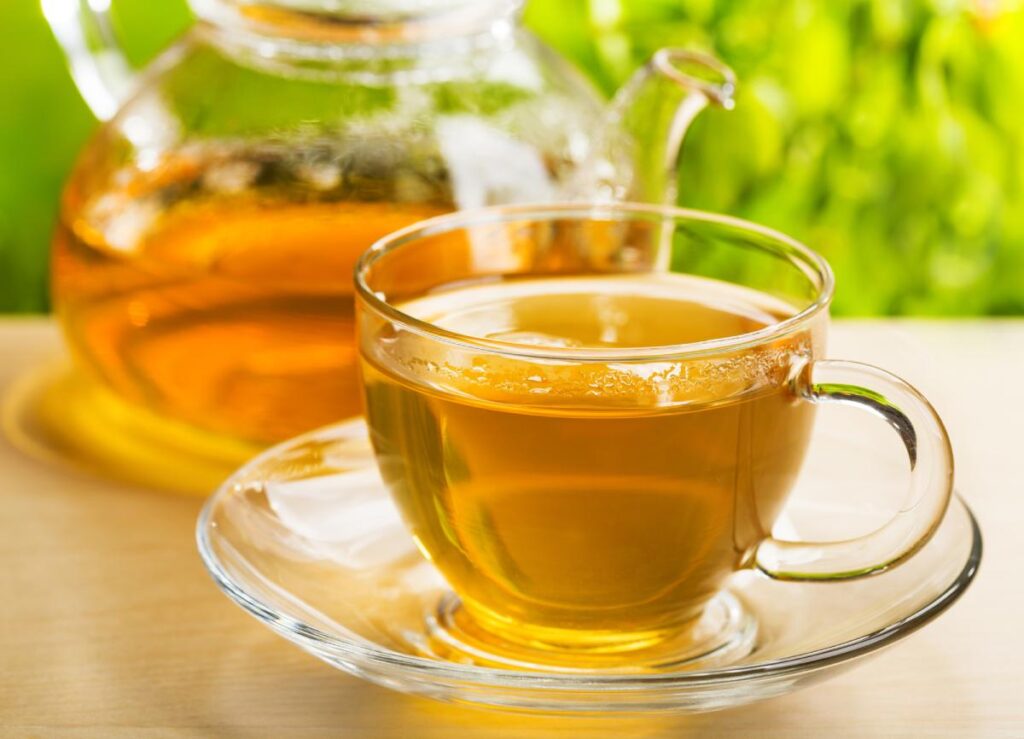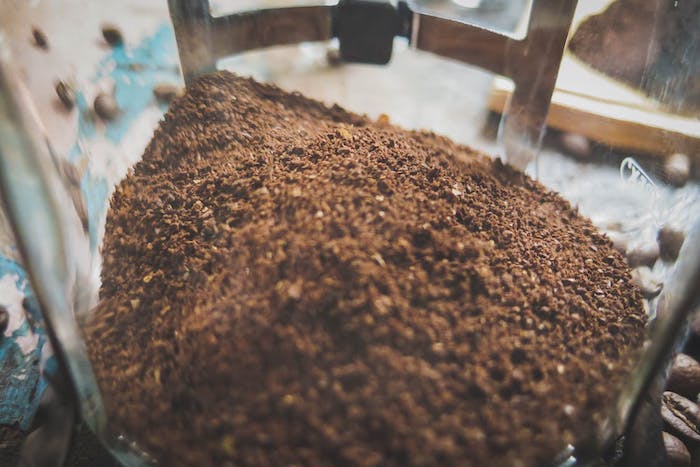Wondering how much caffeine is in a cup of tea? Look no further, our comparative article looks into different types of tea and how much caffeine they contain.

Around 80% of the world’s population consumes a caffeinated product every day. That number increases to 90% of adults in North America. How many cups of tea do you brew a day? One, two, three? If you’re keen to know the caffeine content of your favorite cup of tea, we’ve got you covered.
Whether it’s black, green, or herbal, read on to find out the caffeine content lowdown.
Bur first, what exactly is caffeine?
Caffeine Defined
We all know the word caffeine, right? It’s found in food and drinks and is known for making us feel more awake.
To give you a bit more detail: It’s a natural stimulant found in plant foods such as tea, coffee, cola nuts, cacao, and guarana. Once consumed, caffeine is quickly absorbed into the bloodstream.
Caffeine speeds up messages through the central nervous system to the brain. These messages help us feel temporarily more awake and alert.
However, note that caffeine affects everyone differently. Some people are very sensitive and can’t consume caffeine at all. Others drink many cups of tea or coffee and don’t seem to have any side effects at all.
How does caffeine impact you?
Caffeine Safety And Side Effects
Like with many things, it’s fine to consume caffeine as part of a balanced diet. However, it’s best avoided from late afternoon onwards to prevent disruption to sleep. Caffeine isn’t recommended for toddlers and young children; pregnant women should have no more than 200 mg of caffeine per day.
The natural stimulant is measured in milligrams (mg) of caffeine. According to Mayo Clinic, 400 mg of caffeine a day appears to be safe for adults to consume.
History Of Caffeine
The first brewed tea has its origins as far back as 2737 B.C. Coffee on the other hand was reportedly discovered many years later by a shepherd in Ethiopia. He noticed the extra energy it gave his herd of goats. And caffeinated soft drinks? They’ve been around since the late 1800s.
Now we’ve outlined a definition and a bit of history, let’s move on to caffeine in tea.
Amount Of Caffeine In A Cup Of Tea

It’s not one size fits all in terms of how much caffeine is in a cup of tea. There are several factors to consider, including:
Type Of Tea Leaf Used
As a general rule, broken tea leaves impart more caffeine into your cup of tea compared to whole leaves. Broken tea leaves are found in teabags.
Amount Of Tea Used
This may sound obvious, but the more tea leaves you add to a cup, the greater the caffeine content. Teabags you buy in a store provide a standard amount of tea leaves. But, if you prefer to use loose-leaf tea, it’s down to you how much you add to the pot – more leaves equate to higher caffeine levels.
Time Taken To Brew The Tea
A larger amount of caffeine is released the longer tea leaves brew in hot water.
Temperature Of The Water Used
Higher temperatures increase the caffeine content. Why? Hotter water acts faster to release caffeine from the tea leaves.
How Much Caffeine?
Let’s get down to the nitty-gritty. But keep in mind that because of the factors mentioned above, the figures we outline can vary quite wildly.
Black Tea
Tea leaves contain 3.5% caffeine (coffee beans have 1.1–2.2%). Depending on how long you steep it, a cup of black tea contains about 47 mg of caffeine per cup, but that can increase to as much as 90 mg.
Does Green Tea Contain Caffeine?
Green tea usually contains less caffeine than black tea. On average, green tea contains 20-45 mg per cup. However, matcha green tea is much stronger. It usually comes in powdered form and contains a whopping 35 mg of caffeine per half a teaspoon.
However, keep in mind that you need less than half a teaspoon to make a cup of matcha tea.
Other Types Of Tea
For comparison, white tea contains between 6–60 mg per cup. And Yerba mate – a tea traditionally enjoyed in South America made by steeping the twigs and leaves of the Ilex paraguariensis plant – yields 65–130 mg of caffeine. Oh, and decaffeinated tea contains less than 12 mg.
Herbal Teas?

Herbal teas like chamomile, lemon balm, and peppermint are caffeine-free. That’s because herbal teas don’t come from the Camellia Sinensis plant. Really, these are infusions rather than teas.
Note: If you buy herbal tea with black tea or green tea added, there will be an amount of caffeine. For example, green tea and ginger or green tea with mint.
Black Tea Versus…
Coffee
Brewed coffee and tea both contain caffeine, but does tea contain more caffeine than coffee? Everything else being equal, a cup of coffee has about 95 mg of caffeine. So, that’s more than tea, whichever way you look at it.
But remember, that 95 mg figure does depend on factors such as the type of coffee bean, the roasting process, and the type of coffee. For example, is your cup of coffee espresso or cappuccino?
Dark roast coffees are less dense than light roast coffees. Because of that, you may use more beans or grounds, yielding more caffeine per cup.
Similarly, espresso is a more concentrated source of caffeine; caffeine content will depend on whether one or two shots are used.
Other Comparisons
Read on for the amount of caffeine per 8 ounce (approximately 240 ml) serving of other popular beverages:
- Energy drinks: 50–160 mg
- Sodas like Cola: 20–40 mg
- Cocoa: 2–7 mg
- Chocolate milk: 2–7 mg
And other foods?
- Milk chocolate: (1 ounce / 28 grams): 1–15 mg
- Dark chocolate: (1 ounce / 28 grams): 5–35 mg
Caffeine is also found in cold, allergy, and pain medications. And it’s a common ingredient in weight loss supplements.
The Final Word On Caffeine In A Cup Of Tea?
The short answer? It varies. The caffeine content depends on how you prepare your tea and the type of tea you drink.
Black tea contains the most caffeine, with green tea packing a moderate caffeine punch as well. The caffeine of white teas varies tremendously, while herbal teas are caffeine-free.
Want to cut back on caffeine but don’t want to stop drinking tea? Try steeping your tea for less time, or opt for decaffeinated versions for your afternoon cup. Think about the factors involved and adjust your tea drinking accordingly.
